2018 Symposium
Speakers
-
Oludurotimi Adetunji
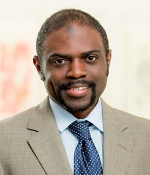 Oludurotimi Adetunji earned a B.S. in physics and computer science from Fisk University and his Ph.D. in experimental condensed matter physics from The Ohio State University. Prior to joining Brown, Dean Adetunji was Assistant Dean for Natural and Mathematical Sciences at The Ohio State University. During his tenure at Ohio State, Dean Adetunji served as principal investigator on National Science Foundation grants, worked as a physical scientist in the areas of biomaterials and nano-channel glass device/applications at the Naval Research Laboratory in Washington, D.C.
Oludurotimi Adetunji earned a B.S. in physics and computer science from Fisk University and his Ph.D. in experimental condensed matter physics from The Ohio State University. Prior to joining Brown, Dean Adetunji was Assistant Dean for Natural and Mathematical Sciences at The Ohio State University. During his tenure at Ohio State, Dean Adetunji served as principal investigator on National Science Foundation grants, worked as a physical scientist in the areas of biomaterials and nano-channel glass device/applications at the Naval Research Laboratory in Washington, D.C. Oludurotimi Adetunji serves as the Associate Dean of the College for Undergraduate Research and Inclusive Science overseeing the Undergraduate Research Office and its programs including The Karen T. Romer Undergraduate Teaching and Research Awards (UTRA), The Research at Brown (RAB) Grant and The Excellence in Research Mentoring Award programs. The Excellence in Research Mentoring Award recognizes Brown faculty members for their excellence in mentoring undergraduate researchers, as well as for their promotion, encouragement and training of diverse students in undergraduate research. Dean Adetunji also serves as Brown’s liaison to the Undergraduate Awards, an international awards program that recognizes student creativity, excellence, and innovative thinking. In addition, he runs the university-wide Summer Research Symposium, supervises the Director of the Science Center, oversees science-related grant programs housed in the College, directs the Research Impact office and its programs, advises student groups involved in science programs as well as individual students interested in science, technology, engineering and mathematics (STEM) concentrations, and serves as the Chair of the Brown University Engaged Scholarship and Broader Impacts Joint Committee.
Dean Adetunji is a member of the steering committee of the National Alliance for Broader Impacts, an international organization that advances the societal benefits of scientific research and public engagement with science. He also served as Co-Chair of the National Alliance for Broader Impacts’ Working Group, which developed the Broader Impacts Guiding Principles and Questions for National Science Foundation Proposals.
Dean Adetunji’s commitment and interest in engaging the public in science through multimedia platforms led to the creation of the Brown University Science Cartoons (SciToons) program. He directs the SciToons program, which has been featured in the National Oceanic and Atmospheric Administration (NOAA) climate website and the National Institutes of Health (NIH) National DNA Day website and social media platforms. In May 2018, the program was highlighted in the compendium of the National Academies of Sciences, Engineering and Medicine report which focused on the integration of the Humanities and Arts with Sciences, Engineering, and Medicine in Higher Education. SciToons have been funded by the National Science Foundation and watched in over 180 countries. The SciToons model has been reported in peer-reviewed journal articles and presented in national and international conferences.
-
Daniel Aguirre
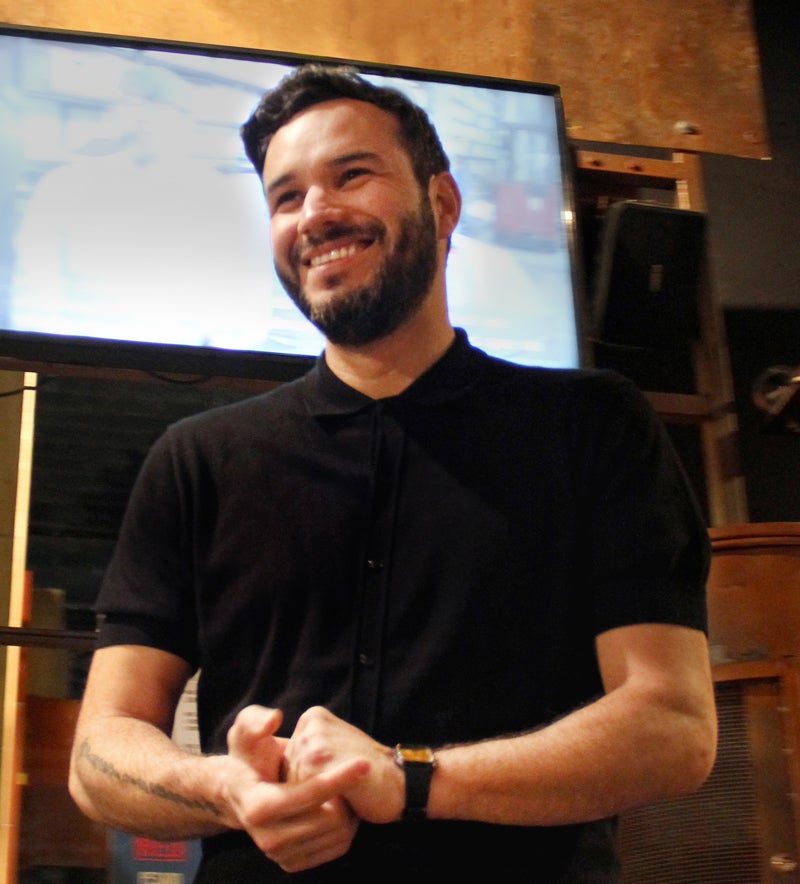 Daniel Aguirre is a passionate community organizer who has been engaging diverse audiences with meaningful experiences for over a decade. As Community Engagement Manager for the Fleet Science Center in San Diego California, Daniel currently leads the 52 Weeks of Science Program. This program authentically engages with neighborhood residents and partners to co-develop STEM programming models that are responsive to community needs, interests and barriers. Daniel also serves as Chair for the Expanding Access working group through the San Diego STEM Ecosystem. This group is dedicated to partnering with underserved communities to help build their science identity by increasing access to informal STEM opportunities. Daniel also co-founded the San Ysidro Education Committee, an active collaboration between local stakeholders dedicated to improving dismal high school completion rates in the underserved neighborhood of San Ysidro, California. In all of his efforts, Daniel has prioritized practicing inclusivity and presenting science in culturally relevant ways.
Daniel Aguirre is a passionate community organizer who has been engaging diverse audiences with meaningful experiences for over a decade. As Community Engagement Manager for the Fleet Science Center in San Diego California, Daniel currently leads the 52 Weeks of Science Program. This program authentically engages with neighborhood residents and partners to co-develop STEM programming models that are responsive to community needs, interests and barriers. Daniel also serves as Chair for the Expanding Access working group through the San Diego STEM Ecosystem. This group is dedicated to partnering with underserved communities to help build their science identity by increasing access to informal STEM opportunities. Daniel also co-founded the San Ysidro Education Committee, an active collaboration between local stakeholders dedicated to improving dismal high school completion rates in the underserved neighborhood of San Ysidro, California. In all of his efforts, Daniel has prioritized practicing inclusivity and presenting science in culturally relevant ways. -
Gyasi Alexander
 Gyasi Alexander is a first generation Afro-Trinidadian/African American immigrant pursuing a Bachelor’s of Science degree in marine biology at URI on a Gates Millennium Scholarship. Gyasi is passionate about marine conservation, science communication, and the intersections of STEM inclusivity and social justice.
Gyasi Alexander is a first generation Afro-Trinidadian/African American immigrant pursuing a Bachelor’s of Science degree in marine biology at URI on a Gates Millennium Scholarship. Gyasi is passionate about marine conservation, science communication, and the intersections of STEM inclusivity and social justice. -
Angela Calabrese Barton
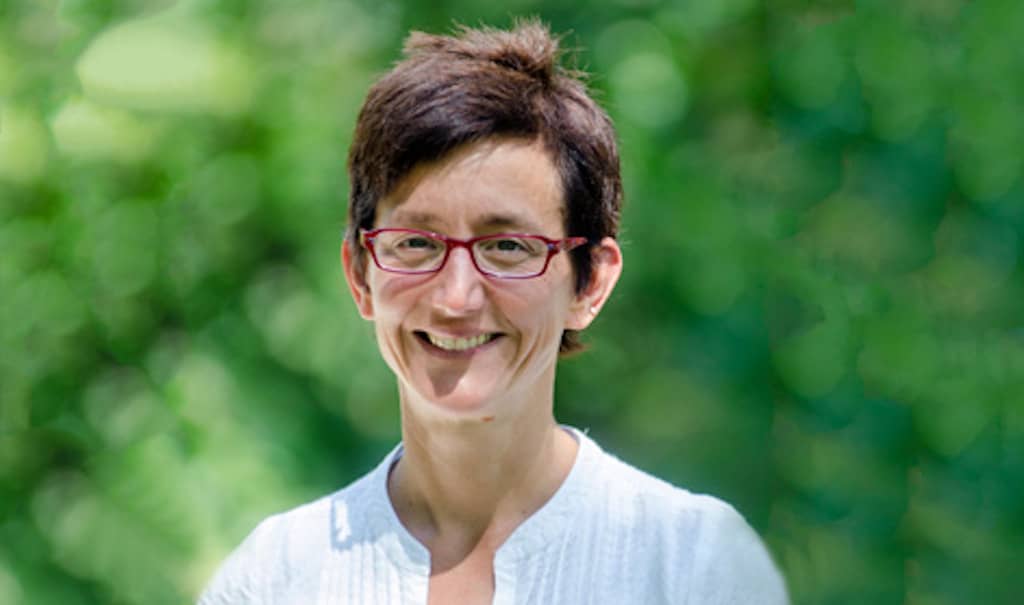 Angela Calabrese Barton is a professor in the Department of Teacher Education at Michigan State University. Her research is grounded in the intersections of teaching and learning science with an emphasis on equity and social justice. Her recent work takes place within three interrelated strands: 1) Working within the intersection of formal/informal education in support of understanding and designing new possibilities for equitably consequential teaching and learning; 2) designing teaching learning tools and experiences that promote more expansive learning outcomes, such as critical agency, identity work, and social transformation (as grounded within expanding disciplinary expertise); and 3) methodologies for embracing authentic “research + practice” work that attends to practitioner and youth voice, and critically engages the goals of equity and justice.
Angela Calabrese Barton is a professor in the Department of Teacher Education at Michigan State University. Her research is grounded in the intersections of teaching and learning science with an emphasis on equity and social justice. Her recent work takes place within three interrelated strands: 1) Working within the intersection of formal/informal education in support of understanding and designing new possibilities for equitably consequential teaching and learning; 2) designing teaching learning tools and experiences that promote more expansive learning outcomes, such as critical agency, identity work, and social transformation (as grounded within expanding disciplinary expertise); and 3) methodologies for embracing authentic “research + practice” work that attends to practitioner and youth voice, and critically engages the goals of equity and justice. -
Ralph Bouquet
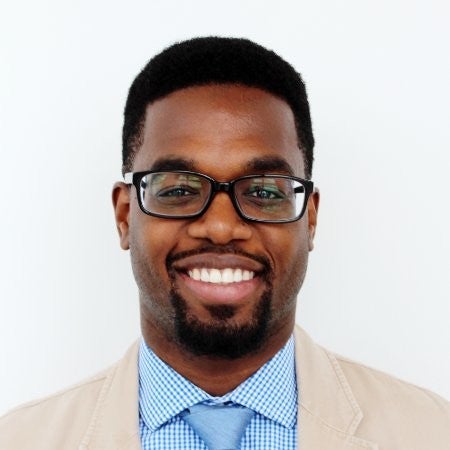 Ralph Bouquet is the Education and Outreach Manager for NOVA, the PBS science documentary series produced by WGBH in Boston. At NOVA, Ralph leads the team that supports science educators via the creation of classroom resources from NOVA’s broadcast and digital productions and science communication events. Before NOVA, Ralph taught high school biology and chemistry in Philadelphia and later developed web and mobile apps as a co-founder at Canary, a Boston-based tech startup. Ralph received his B.A. from Harvard University, and studied secondary science methods and urban education while completing his M.Ed. at UPenn. In his role at NOVA, Ralph combines his experience in science education and tech to find creative ways to inspire and engage new audiences in NOVA’s broadcast and digital productions.
Ralph Bouquet is the Education and Outreach Manager for NOVA, the PBS science documentary series produced by WGBH in Boston. At NOVA, Ralph leads the team that supports science educators via the creation of classroom resources from NOVA’s broadcast and digital productions and science communication events. Before NOVA, Ralph taught high school biology and chemistry in Philadelphia and later developed web and mobile apps as a co-founder at Canary, a Boston-based tech startup. Ralph received his B.A. from Harvard University, and studied secondary science methods and urban education while completing his M.Ed. at UPenn. In his role at NOVA, Ralph combines his experience in science education and tech to find creative ways to inspire and engage new audiences in NOVA’s broadcast and digital productions. -
Raychelle Burks
 Raychelle Burks is a professor at St. Edwards University teaching forensic science research. Prior to returning to the academia, Dr. Burks spent a few years working in a crime lab. An analytical chemist, Dr. Burks enjoys the challenge developing detection methods for a wide-variety of analytes including regulated drugs and explosives. Her current research efforts are focused on the design, fabrication, and analysis of colorimetry sensors that are field portable. To maximize portability, Dr. Burks works on utilizing smart phones as scientific analytical devices. A chemistry enthusiast, Dr. Burks hopes to ignite her students’ appreciation of chemistry through innovative projects, multi-media education tools, and probably far too many pop culture references. She help create and organize SciPop Talks!, a popular talk series blending science and pop culture. Dr. Burks is a popular science communicator, appearing on the Science Channel’s Outrageous Acts of Science, ACS Reactions videos, Royal Society of Chemistry podcasts, and at genre conventions such as DragonCon and GeekGirlCon.
Raychelle Burks is a professor at St. Edwards University teaching forensic science research. Prior to returning to the academia, Dr. Burks spent a few years working in a crime lab. An analytical chemist, Dr. Burks enjoys the challenge developing detection methods for a wide-variety of analytes including regulated drugs and explosives. Her current research efforts are focused on the design, fabrication, and analysis of colorimetry sensors that are field portable. To maximize portability, Dr. Burks works on utilizing smart phones as scientific analytical devices. A chemistry enthusiast, Dr. Burks hopes to ignite her students’ appreciation of chemistry through innovative projects, multi-media education tools, and probably far too many pop culture references. She help create and organize SciPop Talks!, a popular talk series blending science and pop culture. Dr. Burks is a popular science communicator, appearing on the Science Channel’s Outrageous Acts of Science, ACS Reactions videos, Royal Society of Chemistry podcasts, and at genre conventions such as DragonCon and GeekGirlCon. -
Regina Barber DeGraaff
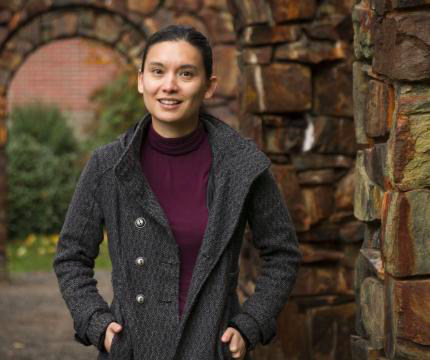 Regina Barber DeGraaff teaches physics, astronomy and science communication at Western Washington University (WWU). Regina completed her PhD in Physics from Washington State University with a focus in Astrophysics, studying globular cluster systems. She also created the position of STEM Inclusion and Outreach Specialist at WWU devoted to the retention and support of underrepresented students and faculty in STEM. In this part-time administrative position Regina advises several STEM clubs (such as the WWU SACNAS Chapter), hiring committees, grant funded programs, and university inclusion committees. She also facilitates co-created equity workshops, serves on the Minority Employee Council Board and plans inclusion events. Lastly, Regina is also the creator and host of the radio show (KMRE) & WWU podcast Spark Science, a talk show which strives to make science amusing, accessible and exciting. Through all of her efforts Regina’s goal is to break apart the scientist stereotype so that anyone can see themselves in science.
Regina Barber DeGraaff teaches physics, astronomy and science communication at Western Washington University (WWU). Regina completed her PhD in Physics from Washington State University with a focus in Astrophysics, studying globular cluster systems. She also created the position of STEM Inclusion and Outreach Specialist at WWU devoted to the retention and support of underrepresented students and faculty in STEM. In this part-time administrative position Regina advises several STEM clubs (such as the WWU SACNAS Chapter), hiring committees, grant funded programs, and university inclusion committees. She also facilitates co-created equity workshops, serves on the Minority Employee Council Board and plans inclusion events. Lastly, Regina is also the creator and host of the radio show (KMRE) & WWU podcast Spark Science, a talk show which strives to make science amusing, accessible and exciting. Through all of her efforts Regina’s goal is to break apart the scientist stereotype so that anyone can see themselves in science. -
Bryan Dewsbury
 Bryan Dewsbury is the principal investigator of the Science Education And Society (SEAS) research program. The SEAS Research program focuses on questions relating to identity constructs, bias, relationships, and the effects of those variables on learning in students (K-PhD). More specifically I am interested in how students (especially those in underrepresented groups) develop perceptions of the world and others, and how these perceptions might in turn affect their engagement with science content, career choices, and ultimately their academic performance. Central to the formation of these constructs are the presence of hidden biases, stereotype threat, and mindset. I use a variety of qualitative and quantitative methods to deduce the effects of these forces, and partner with local schools and URI to implement interventions that have proven to be effective. Ultimately I am interested in helping to re-frame the education discussion to better address questions of equity and community-building, with the belief that the solutions to these are equally important to student exposure to content. In the process, my work addresses pressing issues such as student retention in STEM fields (especially in higher ed), the under-representation of minority groups in certain STEM fields, and the role of affect domain in student learning gains. I also use the results of our efforts to develop curricula that are more inclusive of these new understandings of what makes students successful.
Bryan Dewsbury is the principal investigator of the Science Education And Society (SEAS) research program. The SEAS Research program focuses on questions relating to identity constructs, bias, relationships, and the effects of those variables on learning in students (K-PhD). More specifically I am interested in how students (especially those in underrepresented groups) develop perceptions of the world and others, and how these perceptions might in turn affect their engagement with science content, career choices, and ultimately their academic performance. Central to the formation of these constructs are the presence of hidden biases, stereotype threat, and mindset. I use a variety of qualitative and quantitative methods to deduce the effects of these forces, and partner with local schools and URI to implement interventions that have proven to be effective. Ultimately I am interested in helping to re-frame the education discussion to better address questions of equity and community-building, with the belief that the solutions to these are equally important to student exposure to content. In the process, my work addresses pressing issues such as student retention in STEM fields (especially in higher ed), the under-representation of minority groups in certain STEM fields, and the role of affect domain in student learning gains. I also use the results of our efforts to develop curricula that are more inclusive of these new understandings of what makes students successful. -
Julia Kumari Drapkin
 Julia Kumari Drapkin is the CEO and founder of ISeeChange, an award-winning digital media company and civic engagement platform that empowers communities to connect to each other and their changing environment. Drapkin created ISeeChange after spending over a decade reporting natural disasters and climate change science stories across the globe and in her own backyard. Drapkin currently serves on the board of the National Federation of Community Broadcasters and is a consultant for the think tank Resources for the Future and NASA. She is an alumna of Metcalf Institute’s Diversity Fellowship in Environmental Reporting.
Julia Kumari Drapkin is the CEO and founder of ISeeChange, an award-winning digital media company and civic engagement platform that empowers communities to connect to each other and their changing environment. Drapkin created ISeeChange after spending over a decade reporting natural disasters and climate change science stories across the globe and in her own backyard. Drapkin currently serves on the board of the National Federation of Community Broadcasters and is a consultant for the think tank Resources for the Future and NASA. She is an alumna of Metcalf Institute’s Diversity Fellowship in Environmental Reporting. -
Michael Estrada
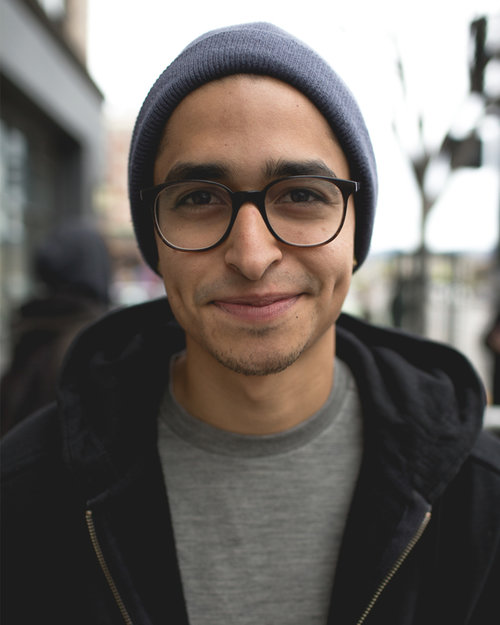 Michael A. Estrada (he/him/his) is a SF-based photographer, activist, writer, and founder of Brown Environmentalist: a media collective and platform elevating the leadership of people of color in the environment. Michael mostly works independently but also holds positions in different spaces. He is a featured athlete and writer on Melanin Case Camp, a Next 100 Coalition Member, on the Reviewing Committee for the Wild and Scenic Film Festival, and the Multimedia editor for PGM ONE. Additionally, he currently works for Patagonia’s photo team, as well. Michael is a first-generation Salvadoran-American, UCLA graduate, and is most passionate about people-centered stories that drive positive change. He can be found on Instagram @brownenvironmentalist, and his personal moodboard @noyekim.
Michael A. Estrada (he/him/his) is a SF-based photographer, activist, writer, and founder of Brown Environmentalist: a media collective and platform elevating the leadership of people of color in the environment. Michael mostly works independently but also holds positions in different spaces. He is a featured athlete and writer on Melanin Case Camp, a Next 100 Coalition Member, on the Reviewing Committee for the Wild and Scenic Film Festival, and the Multimedia editor for PGM ONE. Additionally, he currently works for Patagonia’s photo team, as well. Michael is a first-generation Salvadoran-American, UCLA graduate, and is most passionate about people-centered stories that drive positive change. He can be found on Instagram @brownenvironmentalist, and his personal moodboard @noyekim. -
Bryan Gould
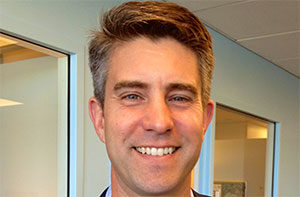 Bryan Gould has been conducting blindness-related research and development projects for over 20 years at WGBH. His projects range from improving access to complex scientific images and high-stakes assessments to amusement park rides and smart phone apps. Bryan’s multiple published guidelines, most notably the STEM Image Description Guidelines, have been adopted by many educational publishers and accessibility organizations and he regularly conducts training sessions on how best to present images, video, and digital experiences to meet the needs of people with visual and print disabilities. Bryan is expert in writing image description for alt text and audio description for video.
Bryan Gould has been conducting blindness-related research and development projects for over 20 years at WGBH. His projects range from improving access to complex scientific images and high-stakes assessments to amusement park rides and smart phone apps. Bryan’s multiple published guidelines, most notably the STEM Image Description Guidelines, have been adopted by many educational publishers and accessibility organizations and he regularly conducts training sessions on how best to present images, video, and digital experiences to meet the needs of people with visual and print disabilities. Bryan is expert in writing image description for alt text and audio description for video. -
Kishore Hari
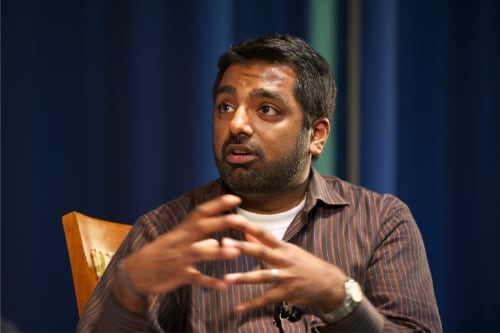
Kishore Hari is a science educator who specializes in producing innovative live science events. Currently, he’s managing strategic partnerships for science engagement at the Chan Zuckerberg initiative. He’s formerly the director of the Bay Area Science Festival, which is based out of the University of California, San Francisco. Hari hosts Mother Jones’ weekly science podcast Inquiring Minds and is the science correspondent for Adam Savage’s Tested.com. Kishore is a former chemist who previously founded an environmental services company that specialized in treatment and removal of mercury.
-
Christine Liu
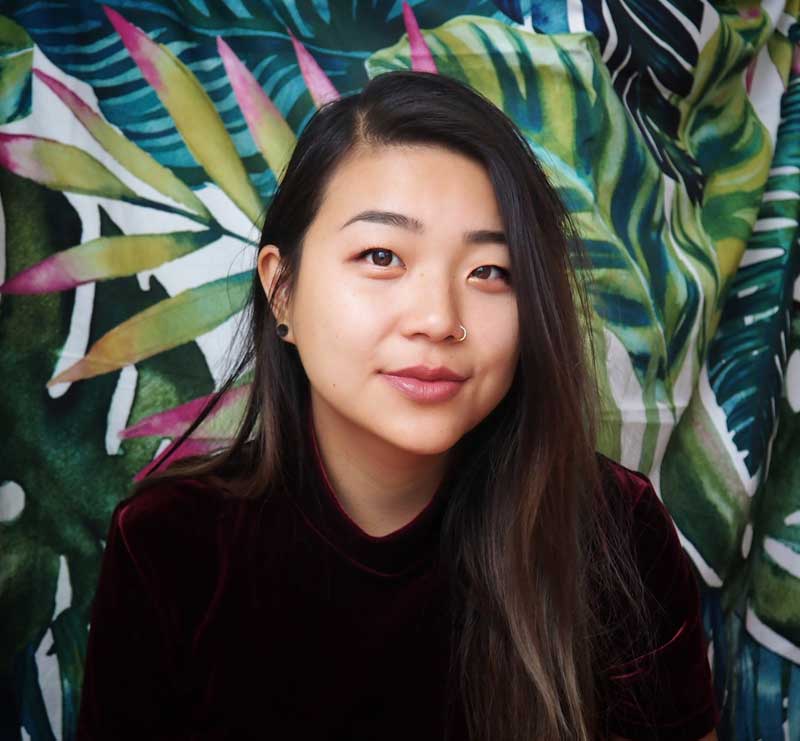 Christine Liu is a PhD candidate at UC Berkeley in neuroscience and earned a B.S. from University of Oregon in Biology and Psychology. She is a self-taught artist and science communicator, using art to make science more accessible and inclusive. She co-founded the science art collective, Two Photon Art, with fellow scientist and self-taught artist Tera Johnson several years after meeting in an undergraduate research program at University of Oregon. Together they create zines, which are DIY art booklets, to share scientific information in a creative and engaging format. They also create enamel pins that allow scientists to wear their love on their sleeve to invite casual science conversations. While navigating the ups and downs of graduate school, Christine also founded The STEM Squad, an inclusive online community for women and nonbinary people in STEM. As a fierce advocate for inclusion, Christine has also led initiatives in the UC Berkeley neuroscience program to prevent sexual harassment and promote healthy mentor relationships.
Christine Liu is a PhD candidate at UC Berkeley in neuroscience and earned a B.S. from University of Oregon in Biology and Psychology. She is a self-taught artist and science communicator, using art to make science more accessible and inclusive. She co-founded the science art collective, Two Photon Art, with fellow scientist and self-taught artist Tera Johnson several years after meeting in an undergraduate research program at University of Oregon. Together they create zines, which are DIY art booklets, to share scientific information in a creative and engaging format. They also create enamel pins that allow scientists to wear their love on their sleeve to invite casual science conversations. While navigating the ups and downs of graduate school, Christine also founded The STEM Squad, an inclusive online community for women and nonbinary people in STEM. As a fierce advocate for inclusion, Christine has also led initiatives in the UC Berkeley neuroscience program to prevent sexual harassment and promote healthy mentor relationships. -
Gabi Serrato Marks
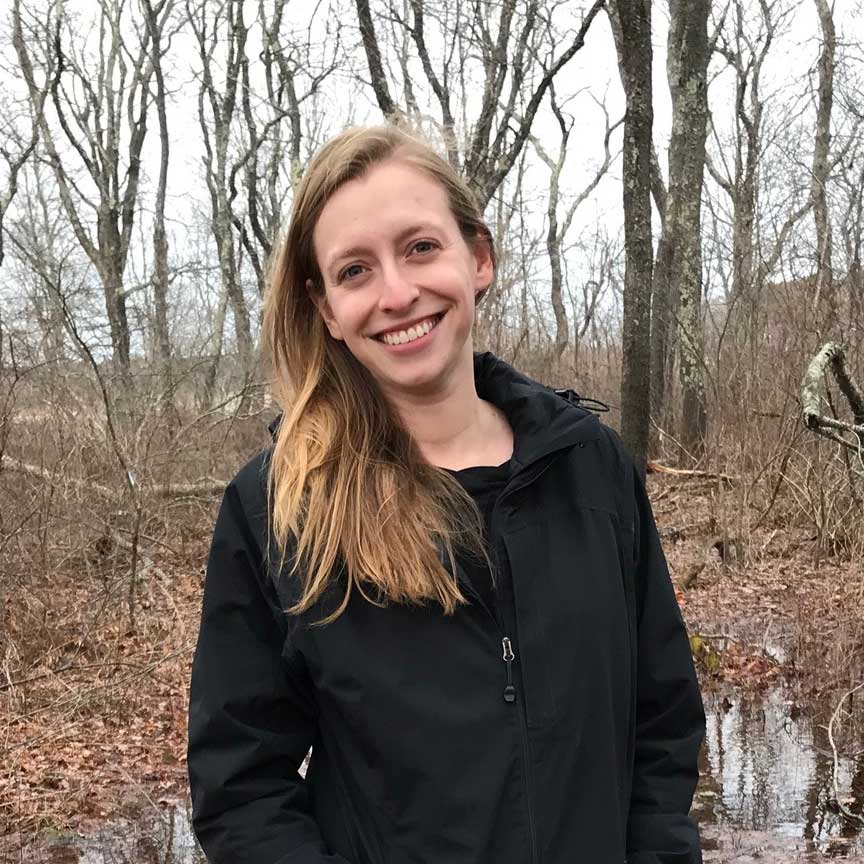 Gabi Serrato Marks is a PhD candidate at MIT in the MIT-Woods Hole Oceanographic Institution (WHOI) Joint Program in Oceanography. Her primary research focuses on ancient climate records. She is passionate about digital science communication in all formats, from tweets to livestreams to videos. Her current focus is a series of videos on the intersection of science and disability, funded by a grant from Two Photon Art. She is a contributing writer and assistant editor for Massive Science and a local organizing committee member for ComSciCon.
Gabi Serrato Marks is a PhD candidate at MIT in the MIT-Woods Hole Oceanographic Institution (WHOI) Joint Program in Oceanography. Her primary research focuses on ancient climate records. She is passionate about digital science communication in all formats, from tweets to livestreams to videos. Her current focus is a series of videos on the intersection of science and disability, funded by a grant from Two Photon Art. She is a contributing writer and assistant editor for Massive Science and a local organizing committee member for ComSciCon. -
Catalina Martinez
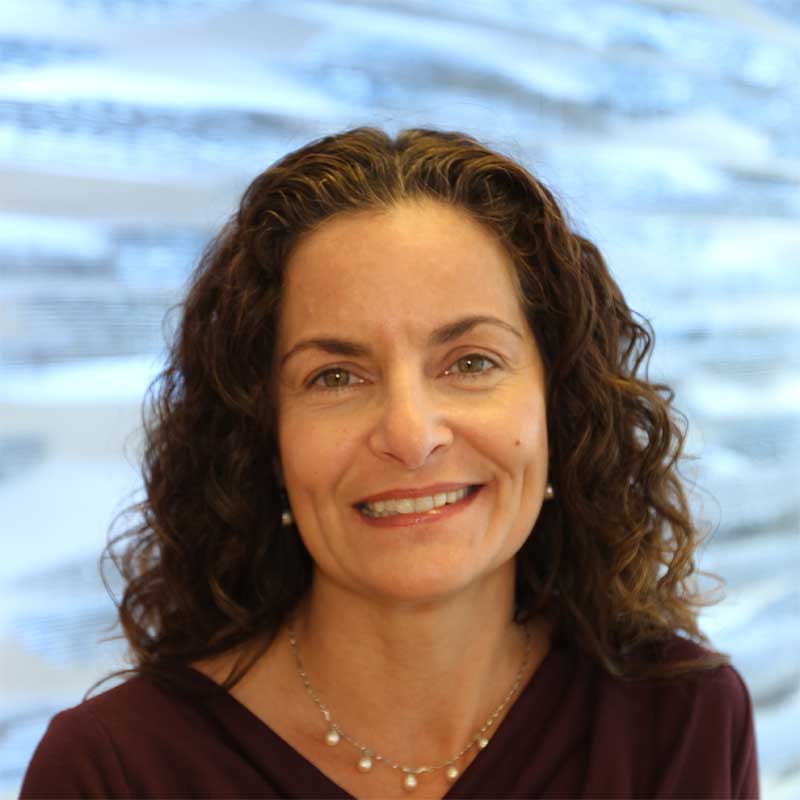 Catalina Martinez is the Regional Program Manager for the NOAA Office of Ocean Exploration and Research (OER) with an office on the University of Rhode Island (URI) Graduate School of Oceanography (GSO) Campus. A certified diversity professional with three graduate degrees from URI (MS Oceanography, MMA Marine Affairs, MBA), Ms. Martinez began her ocean science career with NOAA in 2002 as a John A. Knauss Marine Policy Sea Grant Fellow, and spent several years in the NOAA home office in Maryland working on ship operations and logistics, as well as education and outreach initiatives associated with expeditions to explore little known and unknown ocean areas. In 2004, Ms. Martinez moved back to RI to implement a very exciting collaboration between NOAA OER, URI GSO, and the Ocean Exploration Trust, and has been a Regional Manager for the program ever since. Ms. Martinez spent many years sailing on research vessels as Expedition Coordinator for NOAA OER, and currently spends most of her time managing the joint efforts associated with the collaborations at URI, and as regional liaison for the program. Ms. Martinez also works on a variety of local, regional, and national efforts to face the issues and challenges associated with recruitment and retention of underrepresented individuals in STEM fields, and was honored with the URI Diversity Award for Staff/Administrator Excellence in Leadership and Service in 2010 for this work. Ms. Martinez consistently works to help increase potential for life success for individuals born to challenging circumstances, and was recognized by the YWCA as one of their 2015 Women of Achievement in Rhode Island for promoting peace, justice, freedom and dignity. Most recently, Ms. Martinez was awarded the 2016 NOAA Oceanic and Atmospheric Research EEO/Diversity Award for Exemplary Service for dedication to improving the representation of women and minorities in STEM.
Catalina Martinez is the Regional Program Manager for the NOAA Office of Ocean Exploration and Research (OER) with an office on the University of Rhode Island (URI) Graduate School of Oceanography (GSO) Campus. A certified diversity professional with three graduate degrees from URI (MS Oceanography, MMA Marine Affairs, MBA), Ms. Martinez began her ocean science career with NOAA in 2002 as a John A. Knauss Marine Policy Sea Grant Fellow, and spent several years in the NOAA home office in Maryland working on ship operations and logistics, as well as education and outreach initiatives associated with expeditions to explore little known and unknown ocean areas. In 2004, Ms. Martinez moved back to RI to implement a very exciting collaboration between NOAA OER, URI GSO, and the Ocean Exploration Trust, and has been a Regional Manager for the program ever since. Ms. Martinez spent many years sailing on research vessels as Expedition Coordinator for NOAA OER, and currently spends most of her time managing the joint efforts associated with the collaborations at URI, and as regional liaison for the program. Ms. Martinez also works on a variety of local, regional, and national efforts to face the issues and challenges associated with recruitment and retention of underrepresented individuals in STEM fields, and was honored with the URI Diversity Award for Staff/Administrator Excellence in Leadership and Service in 2010 for this work. Ms. Martinez consistently works to help increase potential for life success for individuals born to challenging circumstances, and was recognized by the YWCA as one of their 2015 Women of Achievement in Rhode Island for promoting peace, justice, freedom and dignity. Most recently, Ms. Martinez was awarded the 2016 NOAA Oceanic and Atmospheric Research EEO/Diversity Award for Exemplary Service for dedication to improving the representation of women and minorities in STEM. -
Rabiah Mayas
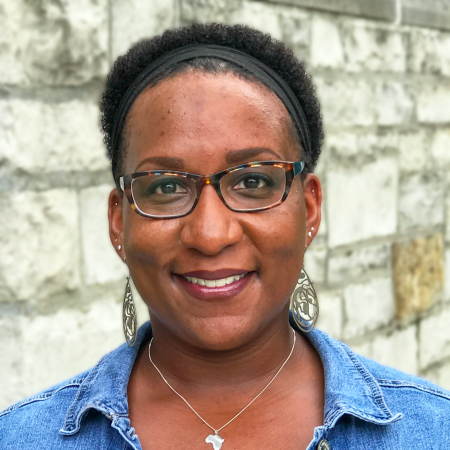 Rabiah Mayas is a self-proclaimed lifelong science nerd whose passion for science education stems from her strong belief in science and scientific thinking as powerful tools toward equity and social justice. She joined Science in Society in 2017 after nine years at the Museum of Science and Industry, Chicago, where she began her career in science education.
Rabiah Mayas is a self-proclaimed lifelong science nerd whose passion for science education stems from her strong belief in science and scientific thinking as powerful tools toward equity and social justice. She joined Science in Society in 2017 after nine years at the Museum of Science and Industry, Chicago, where she began her career in science education.Rabiah completed her Ph.D. in biochemistry and molecular biology in 2007 at the University of Chicago, where she had a series of volunteer experiences with Chicago Public Schools students that solidified her interest in bridging the gaps between scientific research and K-12 students. In 2008, Rabiah joined the Museum of Science and Industry (MSI) as the Science Director for Science Chicago, a yearlong campaign that leveraged more than 140 partners and highlighted STEM through nearly 1,000 public programs.
After the completion of Science Chicago, Rabiah became the Director of Science and Integrated Strategies at MSI, where she led several initiatives within the Museum’s Center for the Advancement of Education. Key program areas developed or expanded under her leadership include programs in which youth interact directly with STEM professionals to learn the scientific and personal stories behind career pathways into STEM fields. She also oversaw the Museum’s digital fabrication laboratory (Fab Lab), public programs of the Black Creativity initiative, and other educational programs dedicated to youth-driven design, engineering and innovation. Rabiah also led the Museum’s evaluation and science learning research on educational programs and exhibit experiences.
Rabiah earned a B.S. in Biochemistry and Molecular Biology and a certificate in Modern Languages and Linguistics from the University of Maryland Baltimore County, where she was also Meyerhoff Scholar. Rabiah is a member of numerous professional societies, nonprofit boards and advisory committees for science learning, public engagement and social justice activities and is a certified Emergency Medical Technician She is also a regular guest on WTTW’s Chicago Tonight for their Scientific Chicago segments covering recent scientific discoveries and news. In her role at Science and Society and more generally, Rabiah is committed to work that ensures equitable access to STEM for all youth, families, and communities, as a key factor in their academic, economic, and health futures.
-
Ellen McCallie
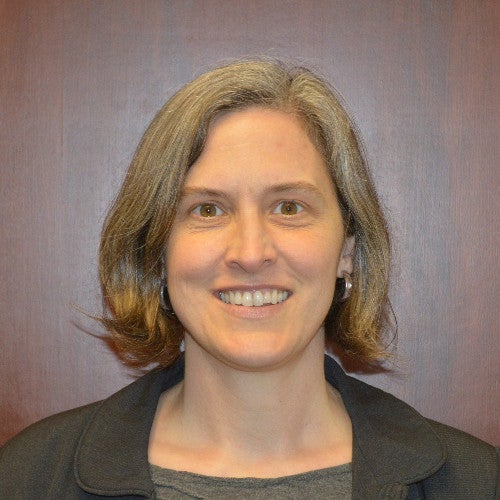 Ellen McCallie, PhD, is a program director in the Division of Research on Learning in Formal and Informal Settings (DRL) at the National Science Foundation (NSF). Originally trained as a tropical ecologist with research in Brazil and Indonesia, Ellen has worked in education, research, and administration in various areas of informal science education, including botanical gardens, science television, natural history museums, and the Center for Advancement of Informal Science Education (CAISE). Ellen’s interests include argumentation on socio-scientific issues, public engagement with science, public participation in scientific research (citizen science and crowdsourcing), and education and research at collections-based museums. The most unexpected work experience Ellen stumbled into was serving as one of five scientists who solved science and engineering challenges in remote areas of the world on the BBC/Open University reality-based television show Rough Science. Ellen earned a BA in Biology at Grinnell College, MS in tropical ecology and rural development at Cornell University, MEd at Washington University in St. Louis, and a PhD in science education at King’s College, London.
Ellen McCallie, PhD, is a program director in the Division of Research on Learning in Formal and Informal Settings (DRL) at the National Science Foundation (NSF). Originally trained as a tropical ecologist with research in Brazil and Indonesia, Ellen has worked in education, research, and administration in various areas of informal science education, including botanical gardens, science television, natural history museums, and the Center for Advancement of Informal Science Education (CAISE). Ellen’s interests include argumentation on socio-scientific issues, public engagement with science, public participation in scientific research (citizen science and crowdsourcing), and education and research at collections-based museums. The most unexpected work experience Ellen stumbled into was serving as one of five scientists who solved science and engineering challenges in remote areas of the world on the BBC/Open University reality-based television show Rough Science. Ellen earned a BA in Biology at Grinnell College, MS in tropical ecology and rural development at Cornell University, MEd at Washington University in St. Louis, and a PhD in science education at King’s College, London. -
Sunshine Menezes
 Sunshine Menezes has served as executive director of the Metcalf Institute at the University of Rhode Island since 2006. Menezes became a Clinical Associate Professor of Environmental Communication in the URI Department of Natural Resources Science in 2017. She was associate director for communication in the URI GSO Office of Marine Programs from 2006 to 2017.
Sunshine Menezes has served as executive director of the Metcalf Institute at the University of Rhode Island since 2006. Menezes became a Clinical Associate Professor of Environmental Communication in the URI Department of Natural Resources Science in 2017. She was associate director for communication in the URI GSO Office of Marine Programs from 2006 to 2017.Prior to focusing her communication efforts on improving news coverage of the environment, she developed national and state-level environmental policy, first as a Dean John Knauss National Sea Grant Marine Policy Fellow with Congressman Frank Pallone, Jr. and later as part of a multidisciplinary team at the URI Coastal Resources Center and Rhode Island Sea Grant. Menezes received a B.S. in zoology from Michigan State University, a Ph.D. in biological oceanography from the URI Graduate School of Oceanography, and was a Rhode Island Foundation Fellow from 2013-2014.
-
Joshua Miele
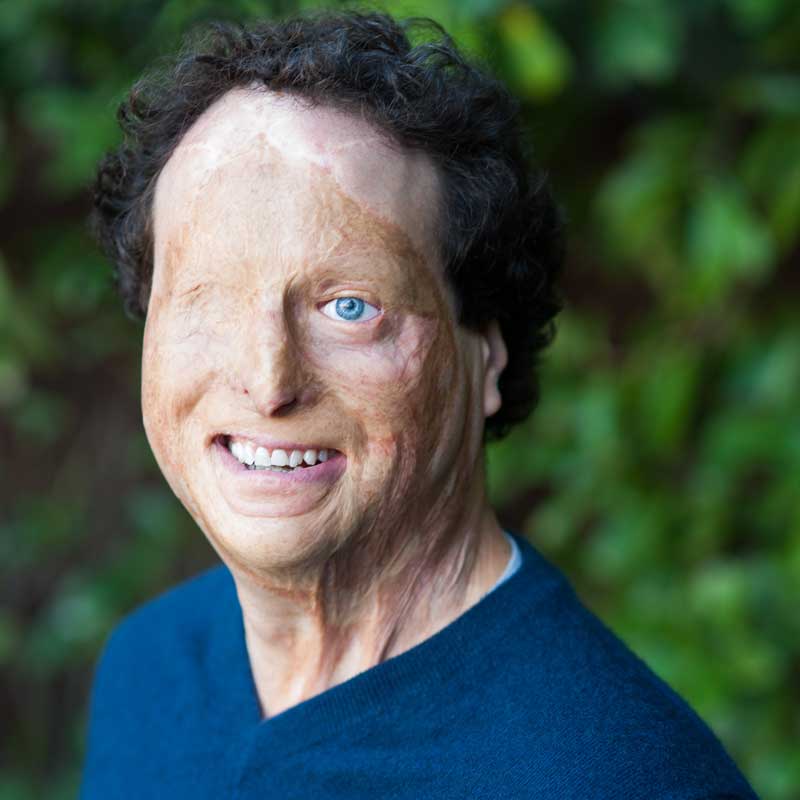 Dr. Joshua Miele has been a creative leader in the area of blindness accessibility for over twenty-five years. He is a respected member of the blind community with significant contributions to such technologies as screen readers, auditory displays, audio/tactile maps and graphics, wayfinding, braille input, and video description. His work is characterized by the imaginative use of low-cost, mainstream technologies to address significant challenges in information accessibility. Dr. Miele conducts his research at the Smith-Kettlewell Eye Research Institute in San Francisco where he is a Scientist and Associate Director of the Rehabilitation Engineering Research Center on Low Vision and Blindness.
Dr. Joshua Miele has been a creative leader in the area of blindness accessibility for over twenty-five years. He is a respected member of the blind community with significant contributions to such technologies as screen readers, auditory displays, audio/tactile maps and graphics, wayfinding, braille input, and video description. His work is characterized by the imaginative use of low-cost, mainstream technologies to address significant challenges in information accessibility. Dr. Miele conducts his research at the Smith-Kettlewell Eye Research Institute in San Francisco where he is a Scientist and Associate Director of the Rehabilitation Engineering Research Center on Low Vision and Blindness. -
Kendall Moore
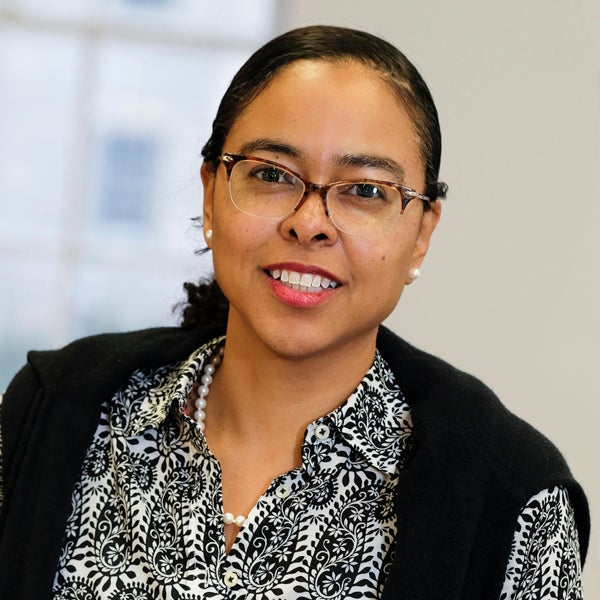 Kendall Moore is an award-winning documentary filmmaker and professor at the University of Rhode Island in the departments of Journalism and Film Media. Before joining the URI faculty in 2003, she worked as a television journalist focusing on medical, health, race, and environmental issues.
Kendall Moore is an award-winning documentary filmmaker and professor at the University of Rhode Island in the departments of Journalism and Film Media. Before joining the URI faculty in 2003, she worked as a television journalist focusing on medical, health, race, and environmental issues.Moore has produced numerous independent documentaries that have aired on PBS and in various film festivals including: Charm City (1996), Song in the Crisis (2004), Sovereign Nation/Sovereign Neighbor (2006), The Good Radical (2009), Sick Building (2014), Philosophy of the Encounter (fiction, 2016), and Jalen and Joanna: A Lead Paint Story (2017).
She has received several grants and awards for her work, including two Fulbright Scholar Awards: Tanzania (2001) and Jamaica (Specialist, 2004); The Rhode Island Film Fellowship for Outstanding Filmmaking (2007); and, the Metcalf Award for 2015. In 2016, she was commended by Crain’s magazine as a professor of merit, in the field of journalism.
She serves on the boards of the Metcalf Institute for Marine and Environmental Reporting and The Story Board at Salve Regina University. She also enjoys mentoring women of color interested in documentary film production. Moore earned a B.A. from Syracuse University in Latin American Studies and an M.A. in media studies and documentary film from The New School for Social Research. Her Ph.D. research, at the European Graduate School for Media and Communication, focuses on race, philosophy and aesthetics.
-
Simon Moya-Smith
 Simon Moya-Smith is an Oglala Lakota and Chicano journalist. He earned a Master of Arts degree in political journalism in 2013 from Columbia University Graduate School of Journalism and a Bachelor’s degree in political science with a minor in ethnic studies in 2007 from the University of Colorado Denver. Moya-Smith is a former staff writer of the Rocky Mountain News, The Denver Post, and NBC News. He has lectured at numerous universities on the subject of contemporary Native America and appeared as a pundit on Al Jazeera, MTV, FOX News, NPR, SiriusXM Radio, Mother Jones, CNN, and numerous other networks and publications. In 2014, he was the lead writer and story producer of MTV World’s Rebel Music Native America, a program concerning Native American musicians who use their craft to raise awareness of plight and prosperity in Indian country.
Simon Moya-Smith is an Oglala Lakota and Chicano journalist. He earned a Master of Arts degree in political journalism in 2013 from Columbia University Graduate School of Journalism and a Bachelor’s degree in political science with a minor in ethnic studies in 2007 from the University of Colorado Denver. Moya-Smith is a former staff writer of the Rocky Mountain News, The Denver Post, and NBC News. He has lectured at numerous universities on the subject of contemporary Native America and appeared as a pundit on Al Jazeera, MTV, FOX News, NPR, SiriusXM Radio, Mother Jones, CNN, and numerous other networks and publications. In 2014, he was the lead writer and story producer of MTV World’s Rebel Music Native America, a program concerning Native American musicians who use their craft to raise awareness of plight and prosperity in Indian country.In 2008, Moya-Smith was a speechwriter for then-Colorado State Senator, Suzanne Williams (Comanche). He was soon hired by The Rocky Mountain News where he launched a blog, “I Am Not a Mascot.” Since then, Moya-Smith has reported for numerous publications covering controversial topics such as Elizabeth Warren, Columbus Day, the Bering Strait Theory, as well as Indian mascots. Moya-Smith continues to address the issue of Native Americans who are disproportionately killed by police more than any other race with little to no attention from mainstream media. In 2016, Moya-Smith spent multiple months at Standing Rock while water protectors continued their fight against Energy Transfer Partners and its Dakota Access Pipeline that was being built near the Standing Rock Reservation.
-
Christine Ortiz
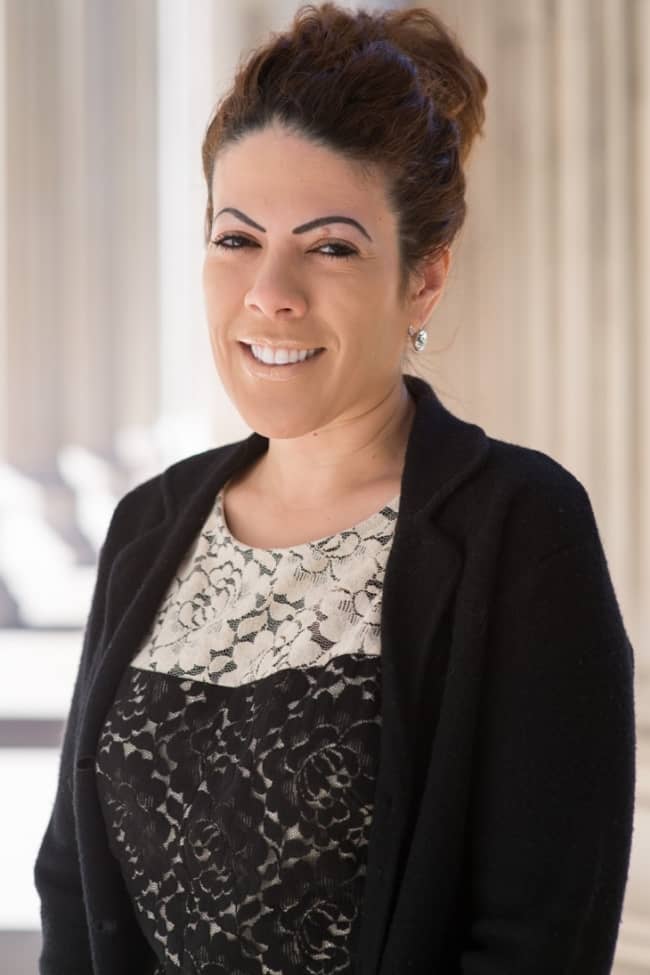 Christine Ortiz is a scientist, engineer, social entrepreneur, educator, and professor. As founder of Station1, she has over 25 years experience in higher education and am the (tenured and chaired) Morris Cohen Professor of Materials Science and Engineering and former dean for graduate education at the Massachusetts Institute of Technology (MIT). During this time, she had the privilege of supporting over 7000 students from more than 100 countries and working with hundreds of faculty and staff on initiatives in diversity and inclusion, global education, technology-enabled learning, learning assessment, curricular and pedagogical design, new financial models, 21st century personal and professional skills development, and many more areas. As a scientist and engineer, her research expertise is in the area of multiscale design and mechanics of biological and bio-inspired materials and manufacturing and she has over 180 scholarly publications and 30 national and international honors, including the Presidential Early Career Award in Science and Engineering given to me at the White House by President George W. Bush. She received a B.S. from Rensselaer Polytechnic Institute (RPI) and an M.S. and Ph.D. from Cornell University all in the field of Materials Science and Engineering. She is an alumna of the National Consortium for Graduate Degrees for Minorities for Science and Engineering (GEM) which provided her with a transformative fellowship and summer internship and enabled her to continue her education and was critical to her career path. She serves on numerous boards, including as a regional accreditation commissioner for the Commission on Institutions of Higher Education, New England Association of Schools and Colleges.
Christine Ortiz is a scientist, engineer, social entrepreneur, educator, and professor. As founder of Station1, she has over 25 years experience in higher education and am the (tenured and chaired) Morris Cohen Professor of Materials Science and Engineering and former dean for graduate education at the Massachusetts Institute of Technology (MIT). During this time, she had the privilege of supporting over 7000 students from more than 100 countries and working with hundreds of faculty and staff on initiatives in diversity and inclusion, global education, technology-enabled learning, learning assessment, curricular and pedagogical design, new financial models, 21st century personal and professional skills development, and many more areas. As a scientist and engineer, her research expertise is in the area of multiscale design and mechanics of biological and bio-inspired materials and manufacturing and she has over 180 scholarly publications and 30 national and international honors, including the Presidential Early Career Award in Science and Engineering given to me at the White House by President George W. Bush. She received a B.S. from Rensselaer Polytechnic Institute (RPI) and an M.S. and Ph.D. from Cornell University all in the field of Materials Science and Engineering. She is an alumna of the National Consortium for Graduate Degrees for Minorities for Science and Engineering (GEM) which provided her with a transformative fellowship and summer internship and enabled her to continue her education and was critical to her career path. She serves on numerous boards, including as a regional accreditation commissioner for the Commission on Institutions of Higher Education, New England Association of Schools and Colleges. -
Ricardo Sandoval Palos
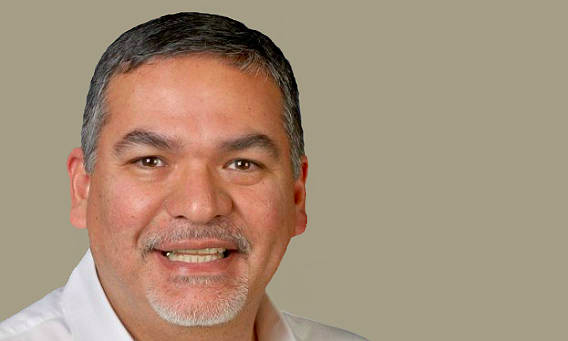 Ricardo Sandoval Palos has extensive experience in ushering award-winning stories from inception to publication. He comes to ICN from 100Reporters, a non-profit investigative organization where he served as interim managing editor. Most recently, he oversaw projects on corruption and abusive resource extraction in Africa, Asia, Latin America and the United States.
Ricardo Sandoval Palos has extensive experience in ushering award-winning stories from inception to publication. He comes to ICN from 100Reporters, a non-profit investigative organization where he served as interim managing editor. Most recently, he oversaw projects on corruption and abusive resource extraction in Africa, Asia, Latin America and the United States.Sandoval-Palos also has served as supervising editor for Morning Edition, National Public Radio’s flagship news show. He is a former board president of the Fund for Investigative Journalism. In that role, he helped double the fund’s grants budget and start diversity fellowships for independent investigative journalists at Brandeis University. He has been a research consultant at Human Rights Watch, where he carried out research projects on immigration, and a project manager at the International Consortium of Investigative Journalists–Center for Public Integrity. He has worked at multiple other news organizations as a reporter, foreign correspondent and editor.
-
Christine Reich
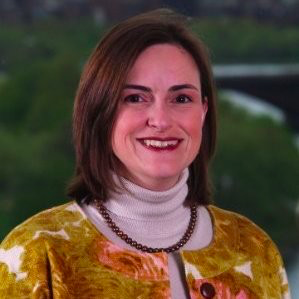 Christine Reich is vice president of exhibit development and conservation at the Museum of Science, Boston, where she previously served as the founding director of research and evaluation. Throughout her career, Reich has been a strong advocate for the inclusion of people with disabilities in museums, and her work in this area led to her to be named as a “Champion of Change” by the White House and a fellow by the Noyce Leadership Institute. She has authored over 25 articles/book chapters related to museums and museum learning, and has made over 80 conference presentations. In addition to her position at the Museum of Science, Reich serves as an adjunct lecturer for the Technology, Innovation, and Education program at the Harvard University Graduate School of Education. She has a B.S. in agricultural and biological engineering from Cornell University, a graduate certificate in museum studies from Harvard University, a M.Ed. in museum education from Lesley University, and a Ph.D. in curriculum and instruction from the Lynch School of Education at Boston College.
Christine Reich is vice president of exhibit development and conservation at the Museum of Science, Boston, where she previously served as the founding director of research and evaluation. Throughout her career, Reich has been a strong advocate for the inclusion of people with disabilities in museums, and her work in this area led to her to be named as a “Champion of Change” by the White House and a fellow by the Noyce Leadership Institute. She has authored over 25 articles/book chapters related to museums and museum learning, and has made over 80 conference presentations. In addition to her position at the Museum of Science, Reich serves as an adjunct lecturer for the Technology, Innovation, and Education program at the Harvard University Graduate School of Education. She has a B.S. in agricultural and biological engineering from Cornell University, a graduate certificate in museum studies from Harvard University, a M.Ed. in museum education from Lesley University, and a Ph.D. in curriculum and instruction from the Lynch School of Education at Boston College. -
Gabriela T. Richard
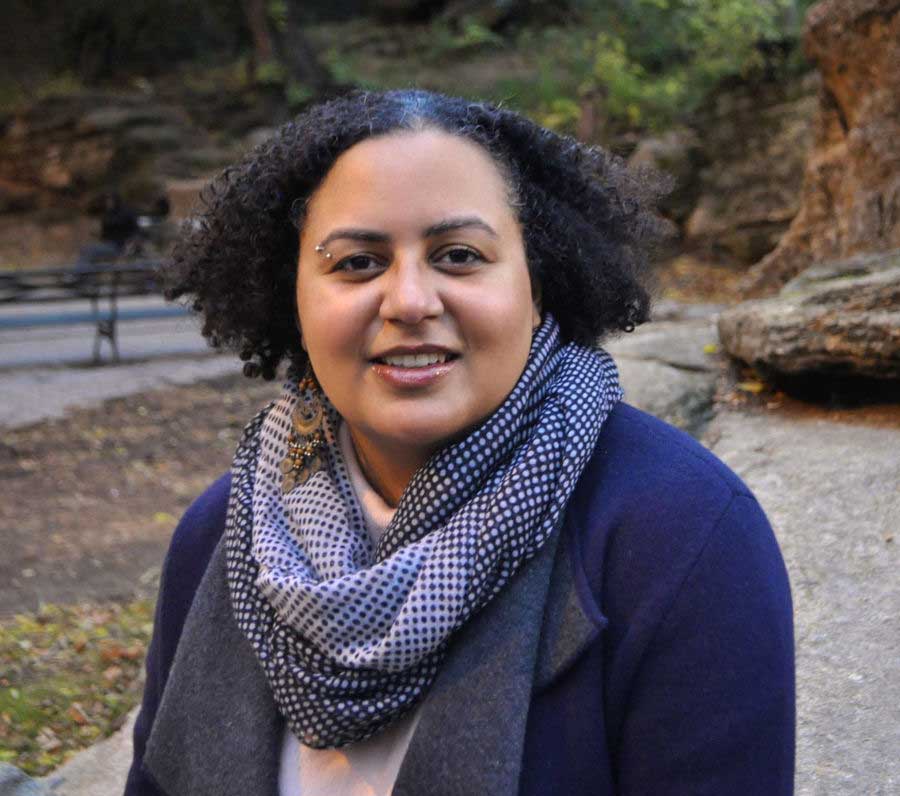 Gabriela T. Richard is a researcher, designer and educator of learning technologies, media, games and play. She is currently an Assistant Professor in the Learning, Design and Technology program at Penn State University, where she conducts research on the ways that diverse youth and adults engage in learning, collaboration, identity formation, and self-efficacy with gaming, livestreaming, makerspaces and computing. A key aspect of her research explores the relationship between access to interest-driven informal science, tech and arts related activities and pathways in and beyond STEM. Prior to pursuing her doctoral degree in educational media and technology, she received her master’s in human computer interaction (HCI) from the Interactive Telecommunications Program (ITP at NYU). During this time, she also worked as an instructional designer and media developer, as well as created, spearheaded and taught early maker and interactive design education efforts (then termed “physical computing”) in the New York City public schools with socioculturally diverse and STEM underrepresented students and teachers. In particular, she explores ways that technologies can be culturally-situated and inclusive and employs intersectionality as a frame for understanding complex sociocultural relationships across gender, race/ethnicity, culture, sexuality and dis/ability in media and design. She has written extensively about video games, diversity and inclusive design, and co-edited the third book in an influential series on gender and gaming, Diversifying Barbie and Mortal Kombat: Intersectional perspectives and inclusive designs in gaming (ETC/CMU Press). She has also authored several papers on formal and informal learning through coding, design, making and informal computing education, often taking an equitable, inclusive and learner-centered perspective and approach. She is the recipient of awards, fellowships and grants from organizations including the National Academy of Education, the National Science Foundation, the American Association of University Women, and the American Educational Research Association. Learn more website: gabrielarichard.com.
Gabriela T. Richard is a researcher, designer and educator of learning technologies, media, games and play. She is currently an Assistant Professor in the Learning, Design and Technology program at Penn State University, where she conducts research on the ways that diverse youth and adults engage in learning, collaboration, identity formation, and self-efficacy with gaming, livestreaming, makerspaces and computing. A key aspect of her research explores the relationship between access to interest-driven informal science, tech and arts related activities and pathways in and beyond STEM. Prior to pursuing her doctoral degree in educational media and technology, she received her master’s in human computer interaction (HCI) from the Interactive Telecommunications Program (ITP at NYU). During this time, she also worked as an instructional designer and media developer, as well as created, spearheaded and taught early maker and interactive design education efforts (then termed “physical computing”) in the New York City public schools with socioculturally diverse and STEM underrepresented students and teachers. In particular, she explores ways that technologies can be culturally-situated and inclusive and employs intersectionality as a frame for understanding complex sociocultural relationships across gender, race/ethnicity, culture, sexuality and dis/ability in media and design. She has written extensively about video games, diversity and inclusive design, and co-edited the third book in an influential series on gender and gaming, Diversifying Barbie and Mortal Kombat: Intersectional perspectives and inclusive designs in gaming (ETC/CMU Press). She has also authored several papers on formal and informal learning through coding, design, making and informal computing education, often taking an equitable, inclusive and learner-centered perspective and approach. She is the recipient of awards, fellowships and grants from organizations including the National Academy of Education, the National Science Foundation, the American Association of University Women, and the American Educational Research Association. Learn more website: gabrielarichard.com. -
Dorothy Santos
 Dorothy R. Santos is a Filipina American writer, curator, researcher, and artist whose academic interests include digital art, computational media, and biotechnology. Born and raised in San Francisco, California, she holds Bachelor’s degrees in Philosophy and Psychology from the University of San Francisco and received her Master’s degree in Visual and Critical Studies at the California College of the Arts. She is currently a Ph.D. student in Film and Digital Media at the University of California, Santa Cruz as a Eugene V. Cota-Robles fellow.
Dorothy R. Santos is a Filipina American writer, curator, researcher, and artist whose academic interests include digital art, computational media, and biotechnology. Born and raised in San Francisco, California, she holds Bachelor’s degrees in Philosophy and Psychology from the University of San Francisco and received her Master’s degree in Visual and Critical Studies at the California College of the Arts. She is currently a Ph.D. student in Film and Digital Media at the University of California, Santa Cruz as a Eugene V. Cota-Robles fellow.Her work appears in art21, Art Practical, Rhizome, Hyperallergic, Ars Technica, Vice Motherboard, and SF MOMA’s Open Space. Her essay “Materiality to Machines: Manufacturing the Organic and Hypotheses for Future Imaginings,” was published in The Routledge Companion to Biology in Art and Architecture. She serves as a co-curator for REFRESH, a curatorial collective in partnership with Eyebeam, the program manager for the Processing Foundation, and host for the podcast PRNT SCRN produced by Art Practical.
-
Rackeb Tesfaye

Rackeb Tesfaye is a PhD student in the Program of Integrated Neuroscience at McGill University in Montreal, Canada. She is also a science communicator and outreach advocate for diversity and inclusion in STEM education.
Her doctorate research is focused on examining biological and behavioral risk factors that contribute to increased sleep problems found in youth with autism. Her research also involves the implementation of community participatory models, whereby the voices of youth and families impacted by autism are valued as equal partners to help guide academic research.
Outside of the lab, Rackeb actively engages in various forms of science communication, including science writing, audio journalism and as an outreach coordinator. She is the founder of Broad Science, a Montreal based initiative that makes science inclusive, engaging and intersectional through podcasts projects. Broad Science currently has three unique ongoing projects: a) A podcast series dedicated to diverse science narratives, b) live science story slams, and c) youth science journalism workshops.
You can follow Rackeb on Twitter @RackebT and Broad Science @science_broads
https://www.broadscience.org/ -
Natasha Udu-gama
 Dr. Natasha Udu-gama serves as Senior Specialist, responsible for building community partnerships, leading Thriving Earth Exchange’s international program development, launching projects, and advancing community science. Natasha brings 10 years of experience in the disaster risk reduction, early warning systems, and climate change adaptation fields to Thriving Earth Exchange. Natasha has extensive experience in community engagement, partnership and development at the local, national and international scales. Her PhD in Environment and Geography specializing in multi-sector partnerships for effective and sustainable community-owned early warning systems is from Macquarie University, Sydney, Australia. Prior to Thriving Earth Exchange, Natasha has served as a consultant for the Northern Virginia Emergency Response System (NVERS) and Virginia Tech’s Advanced Research Institute in Arlington County, and as Project Advisor/Community Resilience Building through Early Warning Systems (CBDRR) with IFRC’s South East Asia Regional Office in Bangkok, Thailand. In her spare time, Natasha is a boxer, kayaker and avid cyclist. She is also a budding voice actor.
Dr. Natasha Udu-gama serves as Senior Specialist, responsible for building community partnerships, leading Thriving Earth Exchange’s international program development, launching projects, and advancing community science. Natasha brings 10 years of experience in the disaster risk reduction, early warning systems, and climate change adaptation fields to Thriving Earth Exchange. Natasha has extensive experience in community engagement, partnership and development at the local, national and international scales. Her PhD in Environment and Geography specializing in multi-sector partnerships for effective and sustainable community-owned early warning systems is from Macquarie University, Sydney, Australia. Prior to Thriving Earth Exchange, Natasha has served as a consultant for the Northern Virginia Emergency Response System (NVERS) and Virginia Tech’s Advanced Research Institute in Arlington County, and as Project Advisor/Community Resilience Building through Early Warning Systems (CBDRR) with IFRC’s South East Asia Regional Office in Bangkok, Thailand. In her spare time, Natasha is a boxer, kayaker and avid cyclist. She is also a budding voice actor.
